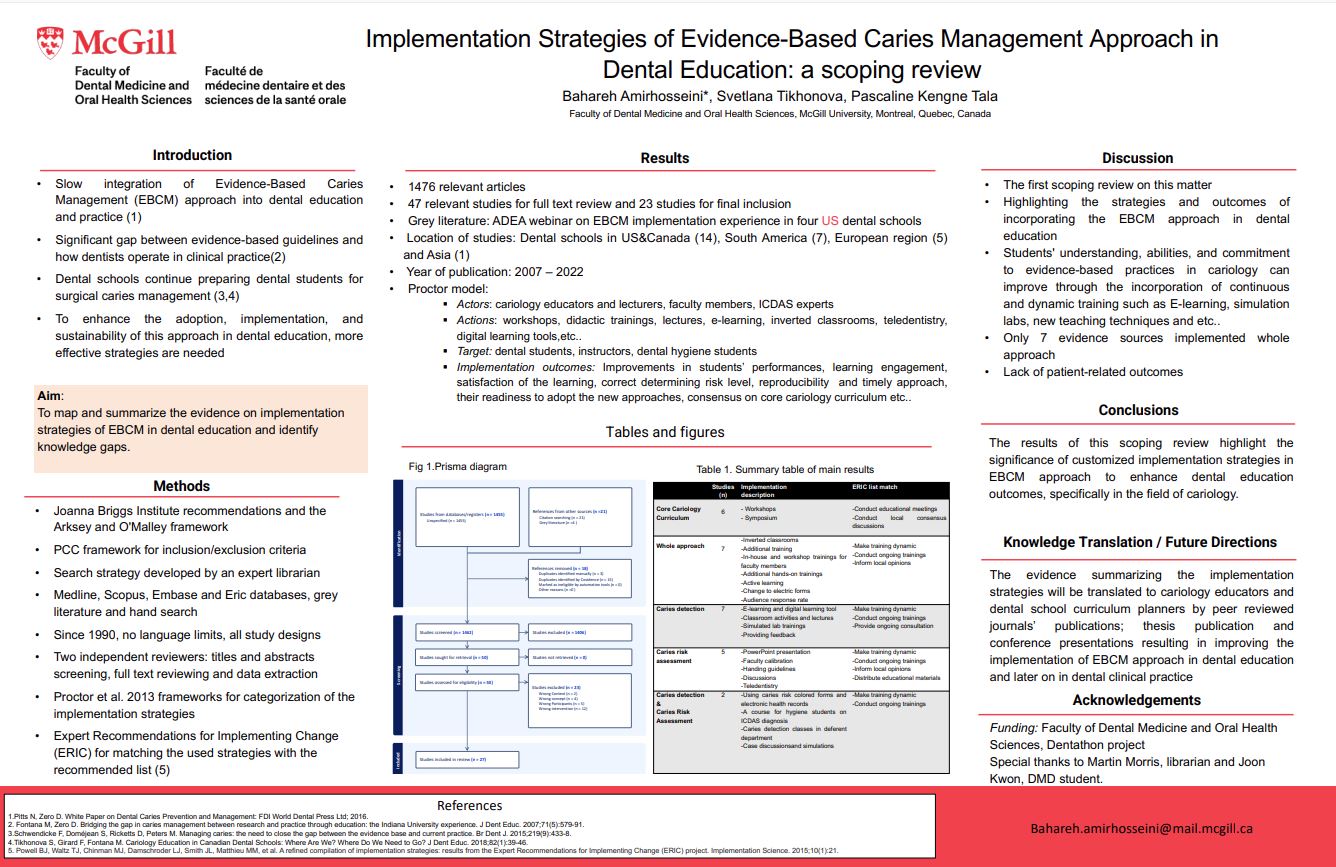Implementation Strategies of Evidence-Based Caries Management Approach in Dental Education: a scoping review
Bahareh Amirhosseini1, Svetlana Tikhonova2, Pascaline kengne Talla3
1)DDS, second year MSc student, Faculty of Dental Medicine and Oral Health Sciences, McGill University, Montreal, Quebec, Canada
2)PhD, Faculty Lecturer, Faculty of Dental Medicine and Oral Health Sciences, McGill University, Montreal, Quebec, Canada
3)PhD. Assistant Professor, Faculty of Dental Medicine and Oral Health Sciences, McGill University, Montreal, Quebec, Canada
Objective: Despite the introduction of Evidence-Based Caries Management (EBCM) approach over two decades ago, its integration into dental education and practice has been slow. This situation can be explained by several barriers at different levels in the inner and outer contexts. In order to enhance the adoption, implementation, and sustainability of this approach in dental education, more effective strategies are needed. This project aimed to map and summarize the evidence on implementation strategies of EBCM in dental education and identify knowledge gaps.
Methodology: Based on the Joanna Briggs Institute recommendations and the Arksey and O'Malley framework, a comprehensive search strategy has been developed by an expert librarian, covering four databases (Medline, Scopus, Embase and Eric). In addition, grey literature search and hand search were performed. Starting from 1990, all articles with any study design were included without any restrictions regarding language. Studies performed in non-education settings were excluded. Two independent reviewers screened, selected the studies, and extracted the data. Descriptive data analysis and narrative synthesis will be performed.
Preliminary results: We found 1455 relevant articles by searching databases and 21 articles by hand search. After removal of 15 duplicates, titles and abstracts screening ended up to 47 relevant studies. The full text articles screening revealed 23 studies for final inclusion. Additionally, we identified 16 abstracts presented at the European Organization for Caries Research congresses and one webinar provided by the American Dental Education Association that contained the EBCM implementation experiences of four dental schools. Implementing EBCM was determined in four areas: consensus on core cariology curriculum (6 articles); caries detection (8 articles); caries risk assessment (6 articles); and implementation of all components of EBCM (3 articles). The following strategies were used to implement these approaches: E-learning, active learning, clinical scenarios, simulated laboratories, faculty calibration.
Conclusions: This review will describe the implementation strategies of the EBCM in dental education settings including the target population, the involved mechanism of action, and the measured outcomes. The research findings will support cariology educators and dental school curriculum planners in improving evidence-informed practices in dentistry
